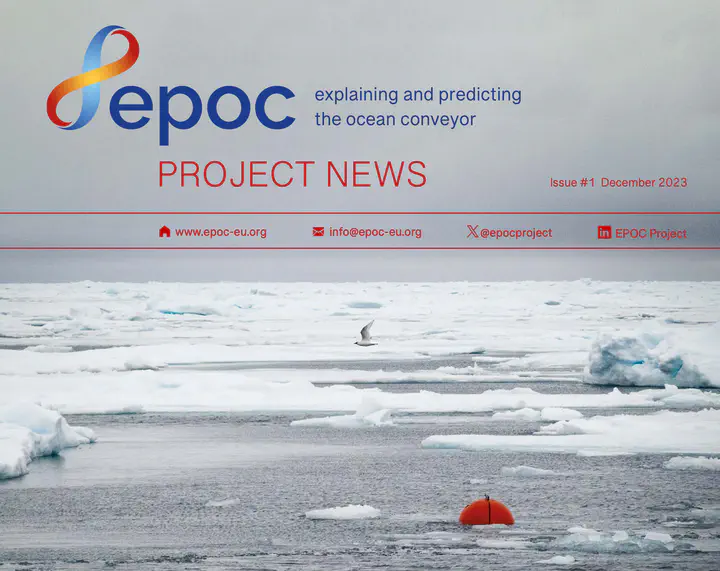EPOC: Project News
Explaining and Predicting the Ocean Conveyor. Newsletter Issue 1

Abstract
The EPOC project aims to understand the Atlantic meridional overturning circulation, including its variability, structure and connectivity between latitudes. We are firmly in the middle of the project, with exciting activities across the board: using high resolution numerical modelling, new observations and new analyses of existing observations, and combining these approaches to develop a new understanding of the circulation as a whole. In this newsletter, we focus on the observational activities of the first year. These included a dedicated EPOC research cruise to the transition zone at 47°N, some new investigations into AMOC connectivity across the region, how EPOC will use sediment cores to examine the transition zone in the pre-instrumental period, biogeochemical (BGC) parameters as measured on mooring arrays – in advance of the recovery of new lab-on-a-chip BGC sensors for EPOC that will be recovered in early 2024, and fieldwork in the Arctic gateways (the northern headwaters of the AMOC) that will move us towards creating, for the first time, a time-varying Arctic-wide estimate of inflow and outflow. In 2023, we also co-coordinated an international AMOC observing workshop in Hamburg that was attended by AMOC observing and modelling groups from around the world. Looking ahead to 2024, we will be analysing the first of the EPOC high-resolution coupled simulations for AMOC processes and variability (as fine as 2 km ocean resolution) and planning further community workshops. Stay tuned!